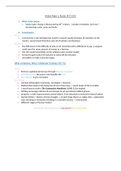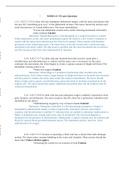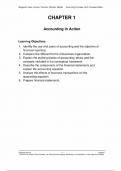Lecture notes
AQA A Level Depth Study Notes - Russia: Introduction to Russia & Marxism
Extremely high quality and detailed notes covering the introduction to the Russia course including: - Introduction to Marxism - What was Russia Like? - The Tsar & Political Authority - The Russian War Effort - October 1904 Revolution
[Show more]






